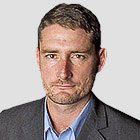The increasing use of electronic surveillance to track everything from a person's sexuality to their spent criminal convictions is eroding trust in society, according to the man charged with protecting the public's privacy.
The decision by Richard Thomas, the information commissioner, to warn of the increasing risks associated with a 24/7 surveillance society in which more and more institutions hold personal data comes amid concerns about the way people's electronic records are being used.
Barclays is being investigated by Thomas's office over allegations of misselling financial products and breaching customer privacy, after it emerged that staff were accessing customers' details without authorisation.
The information commissioner is also investigating a serious security breach on the website used by medical students applying for junior doctor positions. It emerged last week that applicants' confidential details, including their addresses, telephone numbers, criminal convictions, sexual orientation and religion, had been placed on the NHS Medical Training Application Service website.
On Tuesday, Thomas will present a dossier of his concerns to parliament's Home Affairs Select Committee, suggesting that the use of 'unseen and uncontrolled' surveillance is threatening to erode the public's confidence in many of society's institutions.
Two years ago Thomas warned that Britain must not 'sleepwalk' into a surveillance society. His comments this week suggest he fears his concerns are in danger of being realised.
While accepting that there are significant benefits in the use of surveillance, chiefly in helping to combat terrorism and crime, Thomas is becoming increasingly alarmed at the amount of information that is being collected on individuals.
He is expected to claim that 'the risks that arise as a result of excessive surveillance affect us individually and affect society as a whole' and to warn MPs 'there can be excessive intrusion into people's lives with hidden, unacceptable and detrimental uses'.
With the greater use of electronic surveillance and personal record keeping comes an increased threat that mistakes will be made and individual lives disrupted, Thomas believes. In addition, he thinks breaches of security are creating greater potential for discrimination, social sorting and social exclusion, as more institutions are able to 'mine' individual's personal data.
Thomas fears that the growing use of surveillance is leading to a mass of personal information that is inaccurate, insufficient or out of date. Often, he believes, information held on individuals is excessive or irrelevant. Sometimes it is disclosed to those who should not have it; on some occasions it is used in unacceptable or unexpected ways.
At a wider level, the repercussions of a slide to a surveillance society will be extremely damaging, the information commissioner argues. This will lead to growing concerns that there is an excessive intrusion into private lives and a feeling that personal autonomy and dignity are under threat. With more and more institutions holding personal data, this will lead to an increase in the number of 'faceless' organisations that can make arbitrary decisions about individuals which can result in them being stigmatised or excluded.
Ultimately, Thomas believes this growth of excessive organisational power creates 'a climate of fear, suspicion or lack of trust', and he will call on the government to give him new powers and a wider role to combat the threat.
'The information commissioner has one of the toughest jobs around,' said Phil Booth, national co-ordinator of NO2ID, which campaigns against ID cards.
'He needs more resources, to tackle the huge rise in identity theft but also the government's relentless attempts to grab everyone's personal information, which is driving the surveillance society.'
The increasing use of surveillance is becoming a concern to parliament. The House of Lords Constitution Committee is to launch an inquiry into the impact of government surveillance and data collection on the privacy of citizens and their relationship with the state.
The inquiry - which is set against a backdrop of increased use of CCTV, the creation of the national DNA database, the new NHS IT system and the proposals for ID cards - will seek to find out if increased surveillance and data collection by the state have fundamentally altered the way it relates to its citizens.
Gareth Crossman, policy director with civil rights organisation Liberty, said the rise of the surveillance society was storing up future problems.
'The increasing reliance on surveillance means our details are held and shared not because we are under suspicion now but because we might be one day. At this rate, future generations will neither enjoy nor understand the concept of privacy.'



